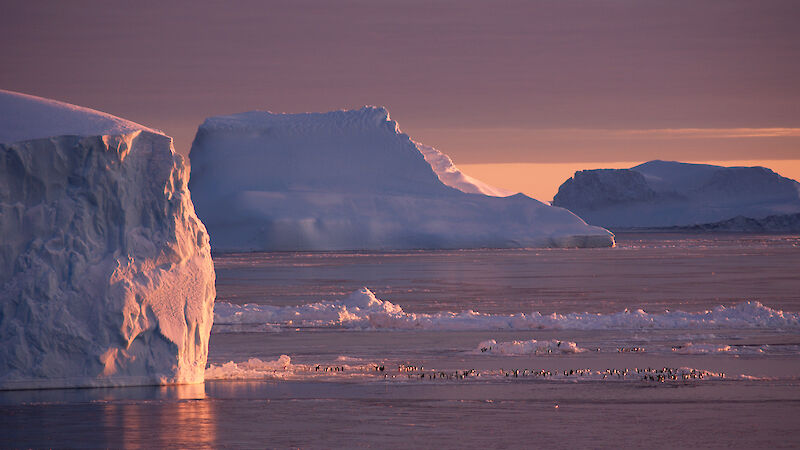Illegal, unreported and unregulated (IUU) fishing remains a significant threat to the marine living resources in the high seas areas of the CAMLR Convention Area. As well as devastating fish stocks, IUU fishing methods can impact heavily on other species.
Sightings of IUU vessels in the past few years have reported that vessels fishing for toothfish in the Southern Ocean are employing gillnetting as their modus operandi. The potential detrimental effects of gillnetting on marine ecosystems are well documented and can be severe. These include large quantities of by-catch, ghost fishing by lost or discarded gillnets, and large scale habitat disturbance due to nets dragging along the sea floor. Deep-sea gillnets pose a huge risk to almost all marine life, including marine mammals due to their indiscriminate nature. In the CCAMLR Area there is significant concern about the impacts of gillnets on non-target species especially sharks and rays. It remains extremely difficult to estimate the levels of IUU catch from gillnetting.
In 2006 CCAMLR adopted a measure prohibiting the use of deep-sea gillnets in the CCAMLR area, recognising the threat they pose to marine living resources. The prohibition applies to all fishing operations except scientific research. Even for scientific research, strict controls apply. These include requirements to notify and seek assessment by CCAMLR’s Scientific Committee before using gillnets for research and requiring vessels to give advance notification if they intend transiting the CCAMLR area with gillnets on board.
Besides the detrimental effect on toothfish stocks, IUU fishing using longlines has significantly affected seabird populations, including endangered albatrosses. IUU fishers do not use measures to avoid seabird bycatch; as a result hundreds of thousands of seabirds have been hooked and drowned on IUU longlines.
Some IUU historic catches were far in excess of the legal catches allocated to licensed fishers in the same areas by CCAMLR. Illegal catches are unsustainable. Tougher international and national measures to combat IUU fishing, including a highly effective patrol program, has seen the level of IUU fishing in Australian subantarctic waters reduced to nearly zero.

